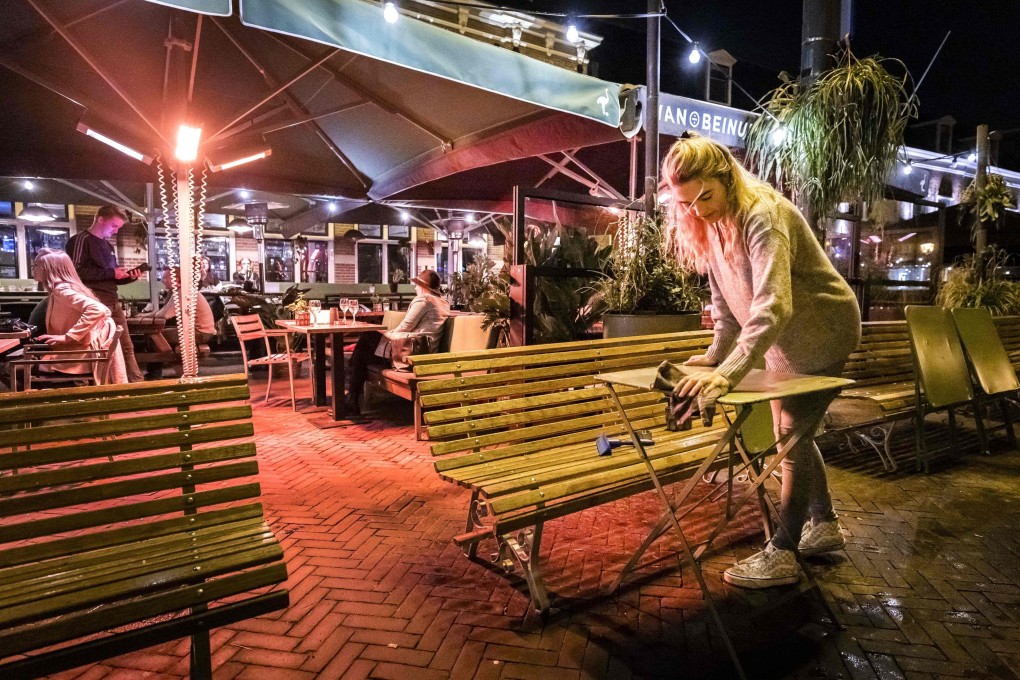Dutch PM orders partial coronavirus lockdown, while Britain faces call for ‘circuit breaker’
- More than 700,000 new Covid-19 cases reported in Europe last week, a jump of 34 per cent from previous week
- Facing one of the highest per capita infection rates worldwide, the Netherlands bans public gatherings of more than four people and closes bars and restaurants

The Netherlands will return to a “partial lockdown” on Wednesday, Dutch Prime Minister Mark Rutte said, closing bars and restaurants as it battles to control the coronavirus in one of Europe’s major hotspots.
“Today we are announcing new and sturdy measures and in fact we are going to a partial lockdown,” Rutte said in a televised news conference. He said public gatherings of more than four people would be prohibited and alcohol sales in the evening would also be banned.
Schools were to remain open and public transport would keep running, in contrast to measures imposed during a partial lockdown earlier this year. The measures will last at least four weeks, with a review of their impact after two weeks. If they prove ineffective, tougher restrictions may follow, said Health Minister Hugo de Jonge.
Governments across Europe are ratcheting up restrictions to try to beat back a resurgence of the coronavirus that has sent new infections on the continent to their highest weekly level since the start of the pandemic.

01:25
Flashing necklace alerts wearer to keep social distance
The World Health Organization said on Tuesday there were more than 700,000 new Covid-19 cases reported in Europe last week, a jump of 34 per cent from the previous week. Britain, France, Russia and Spain accounted for more than half of the new infections.